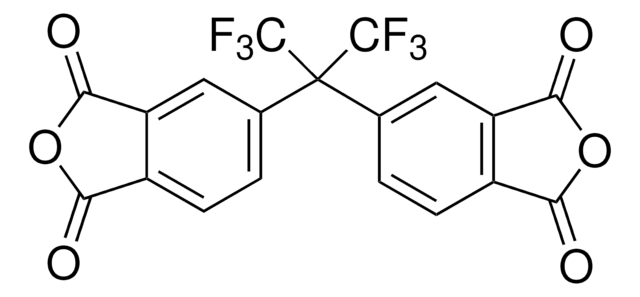442801
2-Hydroxy-5-(trifluoromethyl)pyridine
97%
Synonym(s):
5-(Trifluoromethyl)-2-pyridinol
Sign Into View Organizational & Contract Pricing
All Photos(1)
About This Item
Empirical Formula (Hill Notation):
C6H4F3NO
CAS Number:
Molecular Weight:
163.10
MDL number:
UNSPSC Code:
12352100
PubChem Substance ID:
NACRES:
NA.22
Recommended Products
Quality Level
Assay
97%
mp
145-149 °C (lit.)
functional group
fluoro
SMILES string
Oc1ccc(cn1)C(F)(F)F
InChI
1S/C6H4F3NO/c7-6(8,9)4-1-2-5(11)10-3-4/h1-3H,(H,10,11)
InChI key
BYRJSCNPUHYZQE-UHFFFAOYSA-N
Related Categories
General description
2-Hydroxy-5-(trifluoromethyl)pyridine, a pyridine derivative, is a heterocyclic building block. They have useful applications in catalysis, drug design, molecular recognition, and natural product synthesis.
Signal Word
Warning
Hazard Statements
Precautionary Statements
Hazard Classifications
Eye Irrit. 2 - Skin Irrit. 2 - STOT SE 3
Target Organs
Respiratory system
Storage Class Code
11 - Combustible Solids
WGK
WGK 3
Flash Point(F)
Not applicable
Flash Point(C)
Not applicable
Personal Protective Equipment
dust mask type N95 (US), Eyeshields, Gloves
Choose from one of the most recent versions:
Already Own This Product?
Find documentation for the products that you have recently purchased in the Document Library.
N J Bailey et al.
Journal of agricultural and food chemistry, 48(1), 42-46 (2000-01-19)
Directly coupled HPLC-NMR-MS was used to characterize two major metabolites of 5-trifluoromethylpyridone (2-hydroxy-5-trifluoromethylpyridine), a model compound for herbicides, after it had been dosed into hydroponically grown maize plants. The combination of NMR and MS data allowed the identification of both
Nora Badawi et al.
Environmental science & technology, 49(15), 8995-9003 (2015-07-07)
The herbicide fluazifop-P-butyl (FPB) is used against grasses in agricultural crops such as potato, oilseed rape, and sugar beet. Limited information is available in scientific literature on its environmental fate, therefore extensive monitoring at two agricultural test fields was combined
Our team of scientists has experience in all areas of research including Life Science, Material Science, Chemical Synthesis, Chromatography, Analytical and many others.
Contact Technical Service
